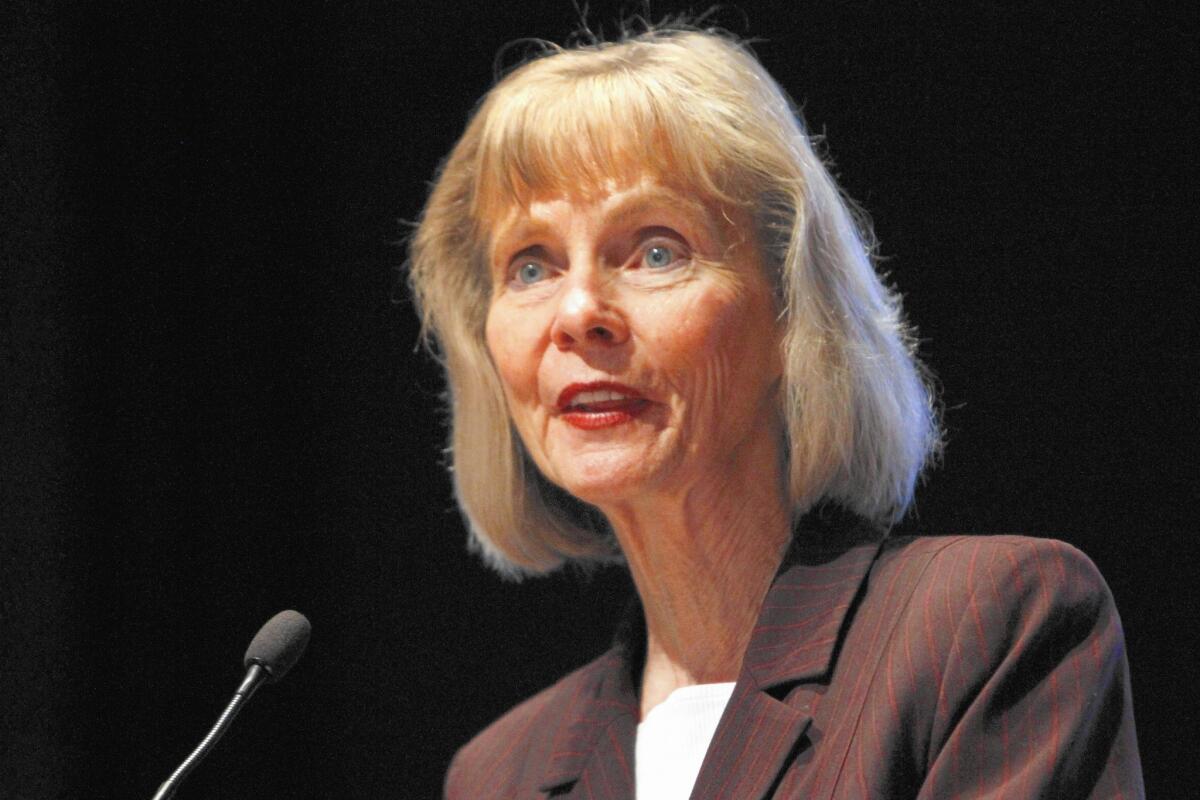Why don’t more women run for office?

No congressional seat is owned lock and stock by a family, particularly given public antipathy to those who hold office. But it was tempting to think that might be the case for the Capps family of Santa Barbara.
Walter Capps, a UC Santa Barbara religion professor, won the local House seat in 1996. When he died unexpectedly less than a year later, his widow, Lois, won a special election for the seat. She held on through some tough races until last month, when she announced she would retire in 2016.
Their daughter Laura Burton Capps was next in the Democratic line, family-wise. She and her husband, Bill Burton, and their 4-year-old son Oscar moved back from Washington two years ago; the expectation was that Capps, a campaign and policy veteran, was replanting herself in Santa Barbara soil to prepare to seek the 24th District seat.
But last week she announced that she would not run to succeed her mother. The reason, she said, was her son.
“I have great respect for members of Congress who have young families, and hope there will be more of them, but a cross-country commute would make it hard for me to be the mom I try to be every day,” she wrote in a Facebook post.
Two things seemed notable: that Capps forthrightly said something that might have been papered over a generation ago — sorry, can’t have it all and not going to try — and that, as much as people talk about wanting representatives steeped in real life, pulling that off remains tough.
This is not to say that the race would have been a cakewalk for Capps. Already, multiple candidates have jumped in: Santa Barbara Mayor Helene Schneider, Santa Barbara County Supervisor Salud Carbajal, Assemblyman Katcho Achadjian and others. The district is split between Republicans and Democrats, liberals arrayed on the Santa Barbara and San Luis Obispo coasts and conservatives inland. Almost 1 in 4 voters belongs to no party at all, enhancing the competitiveness.
If Schneider’s campaign succeeds, the district would end up with a woman representative and the thin ranks of women in Congress, less than 1 in 5 members, won’t be further trimmed. But Schneider is childless, so whichever way this race goes, it will not expand the small subset of mothers in Congress.
Put simply, there are not very many women in federal office with small children. Here in California, Dianne Feinstein and Barbara Boxer had grown children when they won Senate seats in 1992. House minority leader Nancy Pelosi didn’t run for office until the youngest of her five children was almost out of high school.
Even after the so-called Year of the Woman election in 1992, the notion of a mother with little kids running for a distant office was touchy. Mary Bono, running in 1998 to succeed her recently deceased husband Sonny in a Palm Springs congressional seat, used to inoculate herself by explaining to audiences that their young children had endorsed her run.
The funny thing is that what seems logical — that mothers, often the primary caregivers of young kids, would not necessarily feel the time is right to shuttle off to Washington — is not borne out in studies.
A survey by American University government professor Jennifer Lawless found that 46% of childless women had considered running for office, and 49% of women with children under 7 had thought of running — essentially, having children made no difference.
Where the difference lay was between women and men. Seventy percent of men with kids under 7 had considered running for office, 21 points higher than among women. Overall, 62% of men and only 45% of women had considered it, meaning that the larger problem is getting any sort of woman to run.
“Family considerations did not play a role for either men or women,” Lawless said.
It’s complicated, said pollster Christine Matthews, the president of Bellwether Research and a partner in Burning Glass, a Virginia-based consulting firm that works to elect Republican women. Among the plausible causes for the dearth of women: the overwhelming scrutiny, the complicated logistics, the demands of fundraising, the innate nastiness of today’s politics. And, the big one, the pressure women put on themselves to be perfect at everything.
“Scott Walker does not have a college degree and he’s running for president,” she said of the Wisconsin governor. “I cannot imagine a woman without a college degree running for president. We demand so much of ourselves.”
The sheer distance from Santa Barbara to Washington played a big role in dissuading Capps. Getting back and forth requires a two-flight commute; Capps estimated that a quarter of her mother’s flights home were delayed by fog alone.
“I visualized that I’d be stuck in Denver knowing I was going to miss a soccer game,” she said.
There are no term limits for House seats, so Capps knows that another chance may not come her way. She’d like to think it’s time to figure out political schedules that are more family-friendly — for men and women. And in the meantime, maybe opportunities will arise closer to home.
There’s nothing in the works, mind you. But, she said with a laugh, the local school board’s offices are half a mile from her house.
Twitter: @cathleendecker
For more on California politics, go to latimes.com/decker.
More to Read
Sign up for Essential California
The most important California stories and recommendations in your inbox every morning.
You may occasionally receive promotional content from the Los Angeles Times.











